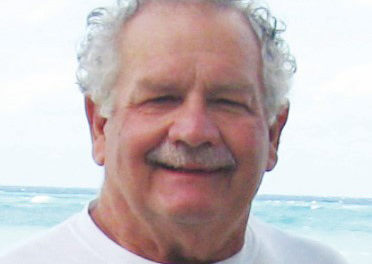I grew up in a small New Jersey seacoast town. Due to its proximity to Manhattan, it had been a summer resort since the mid-1800s. The year-round population of about 2,500 swelled to over 8,000 in the summer months. A hotel was established right on the waterfront at the turn of the last century. It was in a great location with a large parking lot, and it had a liquor license. Then in the mid-1970s, after a slow summer season, the old hotel burned to the ground. This freed up a much sought-after and hard to get liquor license. Since the township would not issue any new licenses, the only way to get one was to buy one that already existed.
Then an entrepreneur proposed to buy the property including the license. He had purchased a large barge at auction for next to nothing and wanted to moor it to the property’s waterfront. This barge had been converted into a floating restaurant with a nautical theme.
I happened to be on the Township Variance Board at the time. What the new owner would need was a variance to transfer the hotel’s liquor license to the barge even though it would be floating and not actually on town property. After some negotiation, he got the variance with the stipulation that the barge be taxed as if it were an actual structure on town property. I was the only dissenting vote because I recommended that the barge owner post a bond so the town would not have to pay for its removal if the restaurant went defunct and the barge was abandoned. The other board members saw only increased tax revenues and employment for some townspeople, so I was out voted.
Well, the restaurant was a great success for several years and the owner went wild flaunting that success. He purchased lots of toys, including a 72-foot sailboat and a 65-foot sport fisherman which he kept on display moored on front of the restaurant. He drove around in a Bentley when he wasn’t riding his fully tricked-out Harley.
Eventually, other good restaurants opened near him and the novelty of dining on a barge wore off. Foul weather led to several bad tourist seasons in a row and he fell on hard times. Business was failing to the point where his suppliers put him on a C.O.D. basis. The last straw was when the company who leased him the credit card machines took them all back!
At this point, he decided it was time for drastic measures and adopted the John DeLorean method of saving the business. (“Sure, I enjoy Pepsi but Coke’s the Real Thing!”) He worked a deal with some drug smugglers to take his sport fisherman out beyond the 12-mile limit and pick up a cargo of what he thought would be cocaine. He was also supposed to bring out a cargo of supplies to provision the ship for its trip back to wherever it came from.
He showed up at the rendezvous point loaded down with groceries and made contact with the other ship. As soon as he was secured to the side of this larger vessel, even before he could unload the supplies he had brought, the crew began to throw bales of marijuana down on his deck! He tried desperately to stop them but it seems none of them spoke English! Pretty soon he was overloaded. The boat began taking on water and was in danger of sinking! At this point, the other vessel cast off their lines and took off for parts unknown at high speed.
There was no alternative but to send out a “Mayday” call to the U.S. Coast Guard and wait for assistance. When they arrived, they found a half-sunk boat floating around amid a bunch of bales of marijuana and one very scared guy frantically bailing with a five-gallon bucket. I do not know which would be worse: explaining what he was doing to the Coast Guard or explaining it to the drug dealers.
When everything was finally sorted out, he wound up in the slammer and all his fancy toys were seized and sold at auction. The restaurant sat vacant for a few years until the barge finally sank and the township had to pay to have it floated and towed off to the scrap yard. By then I was no longer involved with town government, so I didn’t even get a chance to say, “I warned you!”




